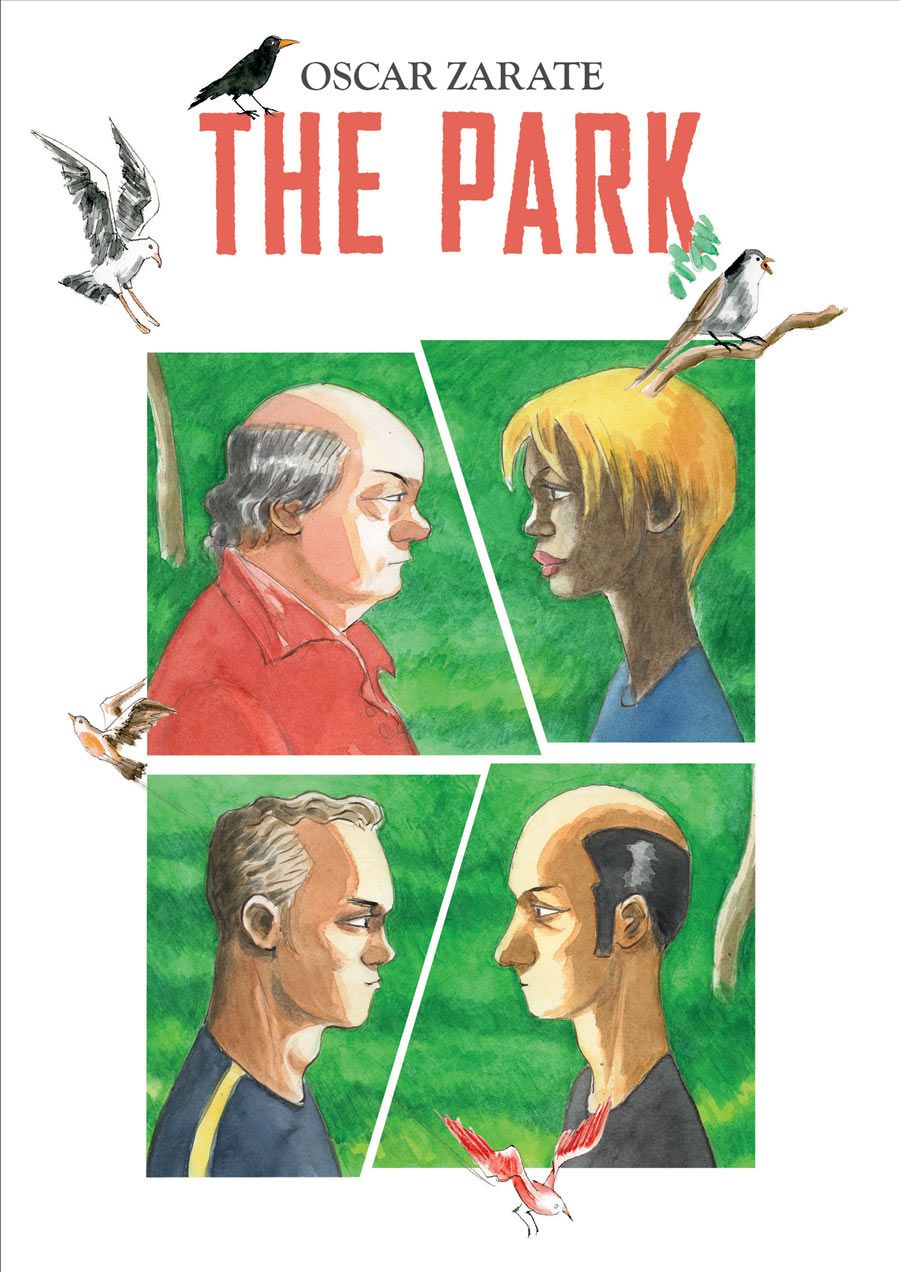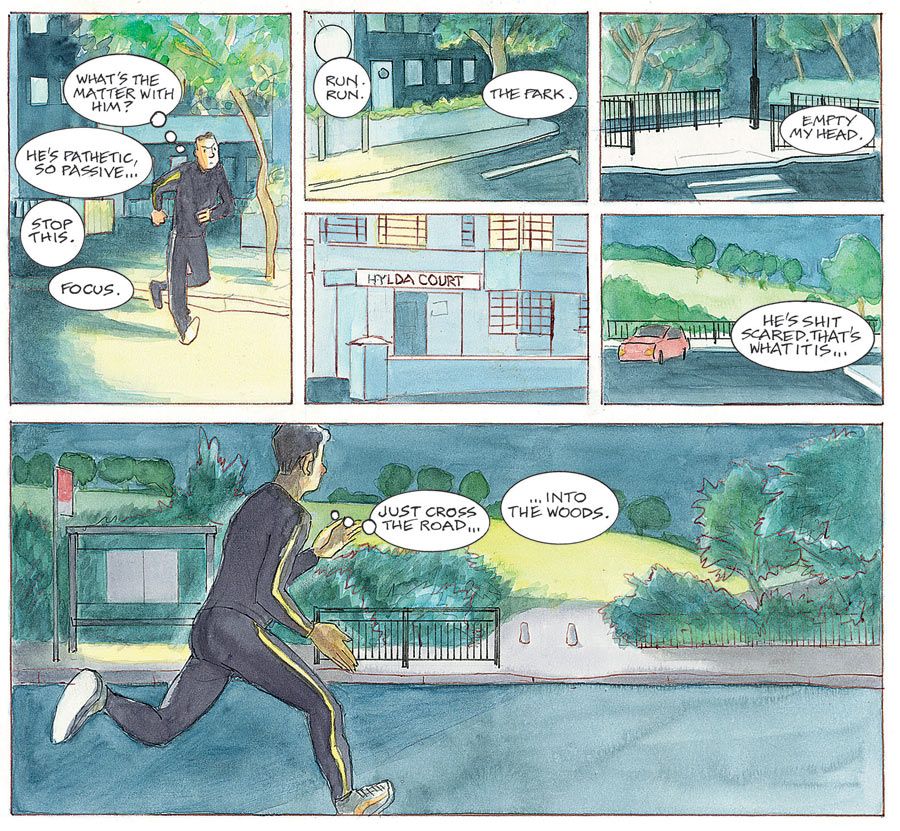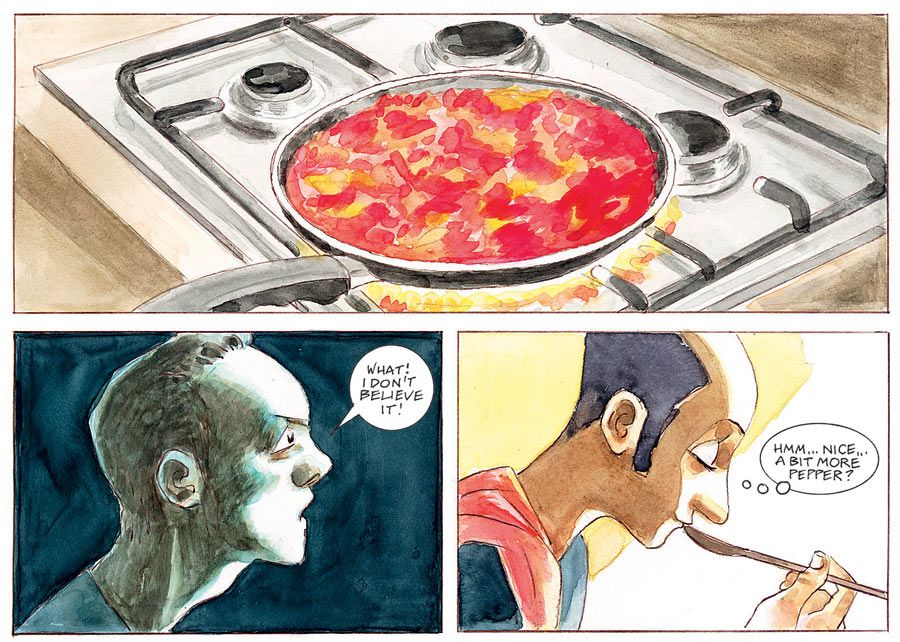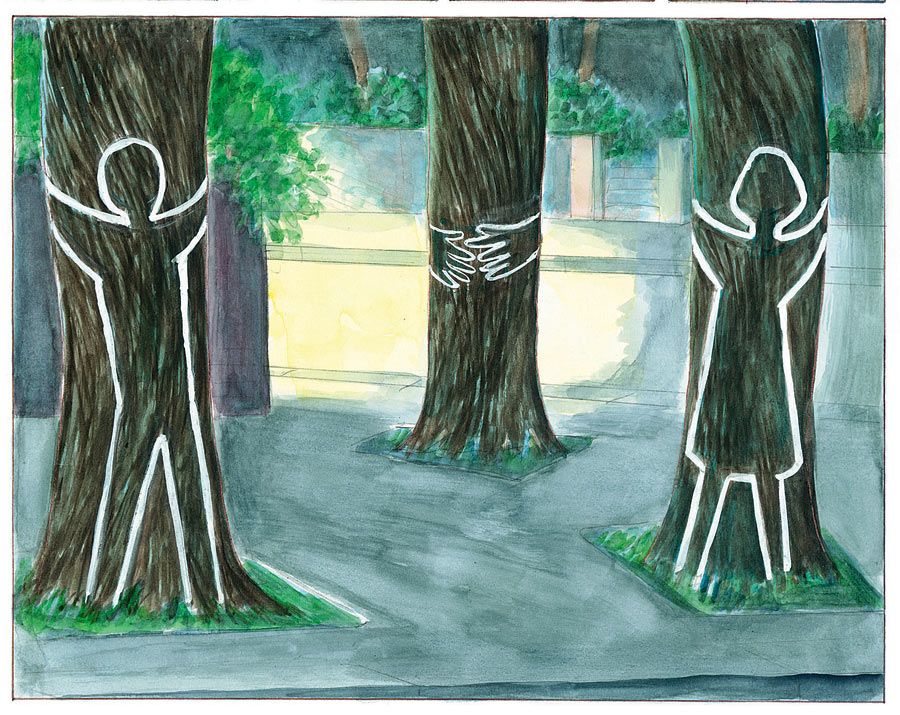Hundreds of lives, each a story of their own. Sporadically interacting, going about their own business. Zoom in on one interaction -- one incident -- and see what happens. The precise moment in Oscar Zarate's "The Park" is when a small dog bites a man on his hand. The man, Chris, kicks the dog, and the pet's owner, blogger Ivan Grubb takes to the Internet in all of his wrath and fury. Just like that -- a sporadic interaction becomes a sensation.
160 watercolored pages, Zarate's "The Park," published by SelfMadeHero, is a character study; a study of words, their effects, their weight and what it means when all of it becomes uncontrollable. London-based Zarate ("Freud for Beginners," "A Small Killing") spoke with CBR about strolls through the park, his undertaking of the project and what it means to act -- and to speak -- without reflecting on the possible outcomes.
CBR News:"The Park"is painstakingly detailed. How long had you'd been thinking about the story before you began production?
Oscar Zarate: The characters come to me in different ways, and at different times. Some of them had lived with me for a long time, waiting for the right story. Around four years ago, the idea of a scenario in a park came to me. That was the precise moment everything started to connect with each other -- the park, the characters and the story.I believe stories come to fruition in their own time, they need to grow slowly and organically, the characters need time to find their own voices.
Do you visit parks often? Is there anything particular that's happened at park that sticks out in your mind?
I am very privileged: I live about a 10-minute walk from the story's park, it is almost my back garden. I visit Hampstead Heath on average 4-5 times a week, with friends and sometimes walking by myself. The park is a huge common space, you can get lost in the woods (for 5 minutes, at least). With its own oak trees, 500 years old, you can easily connect yourself with the past.It is a place of nature, of reflection, of wonder.In a city like London, to have a space like this is a miracle.
I'd be remiss not to mention the watercolors on each page. What's your process in creating a page from start to finish?
I do several color sketches of single frames or full pages. Some pages take me a long time to finish. I am a watercolorist: My main preoccupation is to try to create a mood, a feeling that suits different passages of the story, and the characters as well. Colors must carry a kind of resonance to me and to the reader.
Was there a particular part in the creation of the book that proved more difficult than the rest?
There were 160 pages of difficulties. I think the relationship between Mel and herfather Ivan was a difficult one to resolve. Since they are very much alike in their psychological makeup, I had to find a subtle way to make each of them different from each other.
"The Park"also warns us of the power and the influence of the written word, specifically the written word -- published online. What's your particular view of social media?
The word published online has a remarkable immediacy. Its speed is phenomenal, and it is more "democratic," so we can throw opinions around on all things and people, without sometimes checking the exact facts. Itcan make us less reflective about what we think, what we write, and what we read.This is what I wanted to talk about through one of"The Park"'s characters.
We see how the characters react to the initial catalyst, and we see how they deal with the ripple effects. Putting yourself in their shoes, how would you react?
If I think about Chris's reaction after being bitten by the dog, well, I would have done the same. I would have kicked the dog. I think it's the natural reaction to an act of aggression. If I had to embark on a long battle of revenge, I am aware I would be digging two graves, one for my enemy and one for myself.





